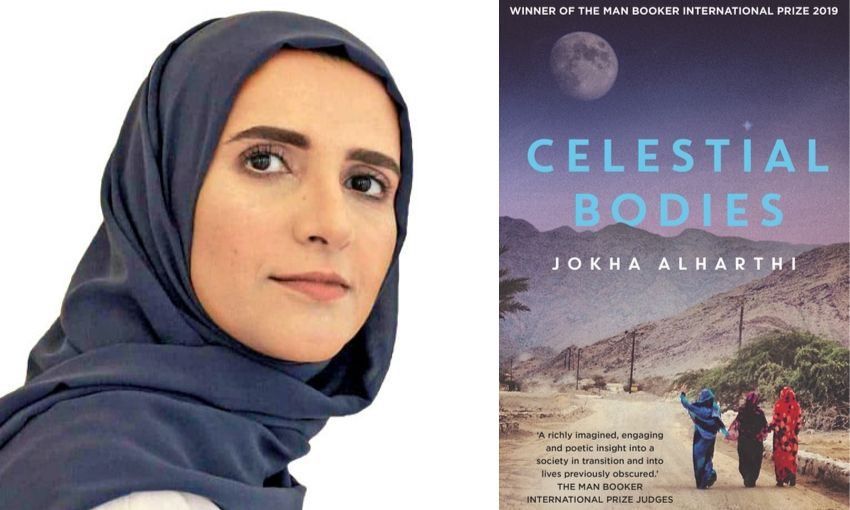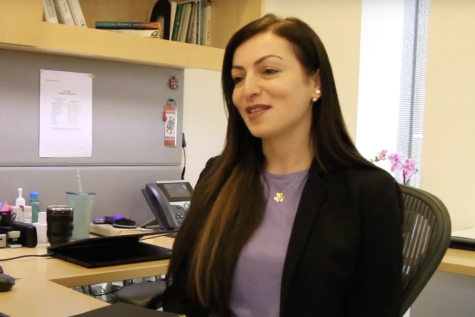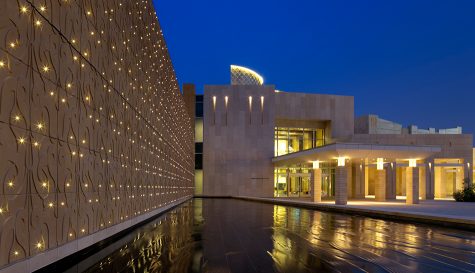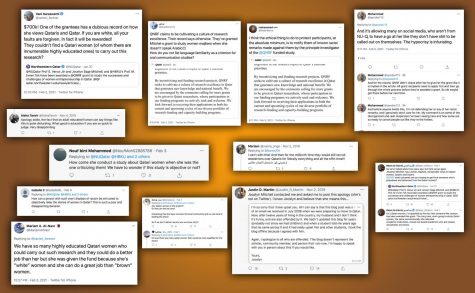NU-Q One Book 2020: “Celestial Bodies” and the Theme of Liberation

Writing literature is the least authoritative way to approach a human being, according to Jokha Alharthi, author of the award-winning book “Celestial Bodies,” in a virtual panel on Nov.4.
The event was part of the One Book 2020 discussion sponsored by Northwestern University in Qatar and moderated by Khaled Al Hroub, professor in residence.
During the discussion, Alharthi talked about her childhood and what drove her into literature and inspired her to write “Celestial Bodies,” an Omani coming of age story. “I think at that time I couldn’t imagine life without poetry and literature and that really benefited me as a writer,” said Alharthi, referring to her early debut.
She also mentioned the important influence of her grandfather, a great scholar and renowned poet, who transmitted to her his passion for writing and classical Arabic literature.
Alharthi discussed the significance of liberation as an overarching theme of her novel. “Liberation has always been part of literature. In Arab societies, we always have complicated relationships with the concept of freedom and liberation,” she said.
Liberation in Alharthi’s novel can be seen from different perspectives: it can be interpreted as the liberation of the Omani people from the British protectorate, the liberation of sons from the hegemony of their families, or the liberation of women from tribal family traditions. “I have seen people struggling with their own concepts of freedom and how to relate to it and apply it in their own lives, and, as a writer, it’s fascinating to observe because liberation is essential to our lives as human beings.”
Alharthi also talked about the theme of slavery in her novel. “Looking at the past, slavery has sadly always been part of human history,” she said. has always been interested in documenting this phenomenon, especially since she had heard many sad stories from previously enslaved people.
She mentioned the character Zarifa, an enslaved person, and delved into the nuances of the notion of freedom, explaining that freedom is not limited to one definition. “Many women in any situation that they were could still maintain their own autonomy even though they were in this situation of being a slave woman,” she said.
Al Hroub asked Alharthi the meaning of the title and why it wasn’t literally translated from Arabic, which would be ladies of the moon. The author explained that this phrase has another meaning in English literature, which she was not trying to portray in her novel. Her translator, Marylin Booth, chose to have the title “Celestial bodies” instead. Alharthi added that she chose to leave some Arabic words in her novel without translation since their meaning could be gleaned from the context of the text and would help readers to relate better to the Arabic language and her novel’s cultural milieu.
An audience member asked Alharthi about why she chose to have so many characters, given that some readers might feel confused and have trouble following the storyline. Alharthi said that she wanted to write her novel in the third person to provide more perspectives to the story and enrich the reader’s experience. “I am trying not to judge my characters and to give them space and that’s what I am trying to do as a writer,” she added.
From a journalistic perspective, Al Hroub questioned whether writing a novel could push people into seeking facts. Alharthi answered that fiction is not always about facts but also about imagination and ambiguity. “Ambiguity is fine in literature,” but that as a writer, “you have to be true to a story.”












